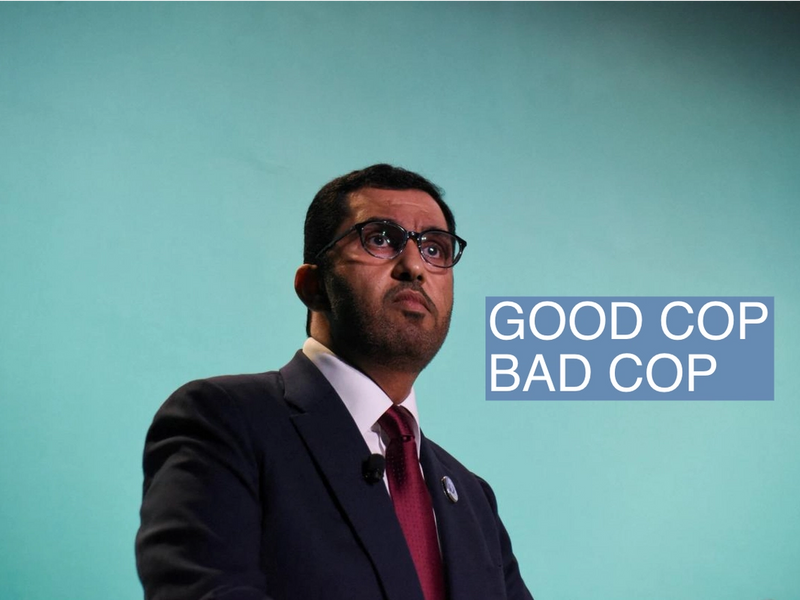What is COP28?
This post is a slight deviation from my projected narrative, but I thought it would be important to shed light on the ongoing climate conference in the UAE. For those who are unaware, COP28 is the 28th 'Conference of the Parties'; a UN-devised conference that facilitates multilateral discussions and commitments to action on prominent climate-change topics (UNCC 2023). Despite yielding benefits for climate-awareness and sustainability agendas, numerous controversies underpin the conference leadership and priorities; hosting the conference in an oil-haven for one (Sanders 2023). According to the president, water was deemed a prime concern for COP28 discussions, with analyses on the resource in ecological, agricultural, and urban contexts (Schabus 2023). Nevertheless, the prominence of the topic beyond conference doors has been limited.
Figure 1: Controversies surrounding oil-stakeholder involvement in COP28 (O'Hare 2023)
Sincere Promises?
The mid-week summary highlighted that an astonishing $150 million has been allocated towards water scarcity financing (COP28 2023). Beyond monetary commitments, the conference has also aimed to feature collectives such as the East African Farmers Federation, to improve local stakeholder participation in discussions on water (Marrakesh Partnership 2023). While these efforts mark an improvement in water-related urgency, it is important to note that water and sanitation solely prevailed in two of thirty adaptation targets established at the previous COP27 conference (GlobalData 2023). Considering the excessive vulnerability of African nations to adverse climate events, it proves essential to prioritise water action strategies at conferences of this scale (Zielinski 2023). Yet with growing skepticism, even by environmental organisations, I beg the question of how successful COP28 and its successors will be in addressing water in Africa.

Figure 2: COP28 Linkedin post deeming water as a priority (COP28, 2023)


This is a really great post about a relevant current affair! It was interesting to read about why COP28 was met with controversy and its efforts to prioritise water and sanitation in discussions regarding climate change. Do you believe that COP28 will have a net benefit/cost towards improving water access in Africa?
ReplyDeleteThank you for your comment! Overall I think that COP28 benefited the topic of water accessibility by raising awareness and encouraging financial commitments from more developed nations. Nevertheless, the outcomes of the conference primarily concerned the agricultural sector, with little attention allocated to endorsing sanitation or other water-related issues. Ideally it should yield a net benefit, but without countries committing to pledges and creating adaptation strategies there could be consequences for water access on the continent.
Delete